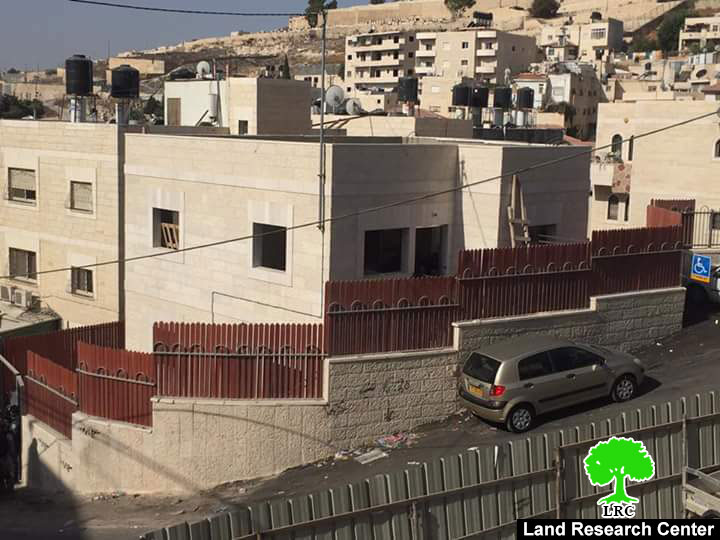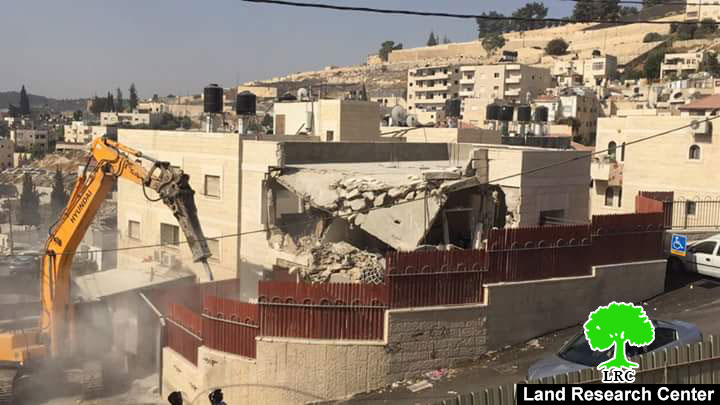2017-09-13
Israel's Occupation Municipality demolishes a residential building in Jerusalem
The bulldozers of the occupation municipality demolished on September 13, 2017 a residential building in the neighborhood of Ras Al-Amoud in Jerusalem under the pretext of "unlicensed construction". Reportedly, the municipality’s bulldozers along with dozens of occupation forces raided the neighborhood of Ras Al-Amoud on Wednesday morning and surrounded a building owned by Muntaser Abu Farha and his brother Mutasem. They closed the roads leading to the building before executing the demolition process.
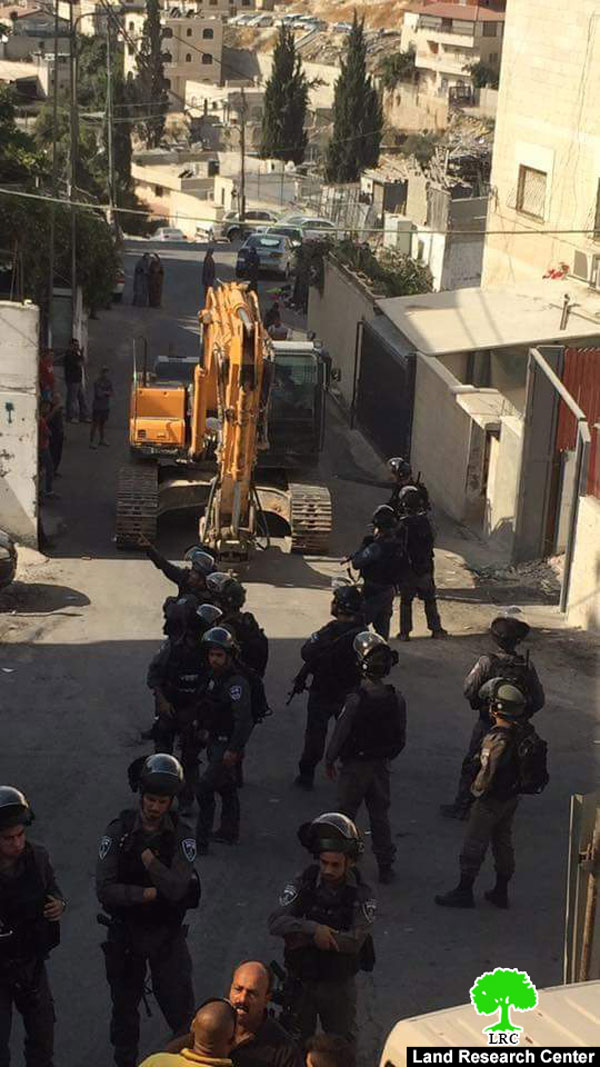
the occupation forces and dozers a bit before the demolition operation
Mutasem Abu Farha explained that the District Court issued a decision last Thursday to demolish the building under the pretext of building without a permit, but the family’s lawyer was able to obtain a decision on Tuesday morning to postpone the demolition for 5 days. On Tuesday night, the lawyer informed them that the decision he had obtained was revoked and the demolition will be executed.
Abu Farha added that the bulldozers along with the forces raided the building in the morning and demolished the building which consisted of two floors where Muntaser, his wife and three children and Mutasem, his wife and their child lived.
the building before the demolition |
the occupation's dozers while bringing down the building |
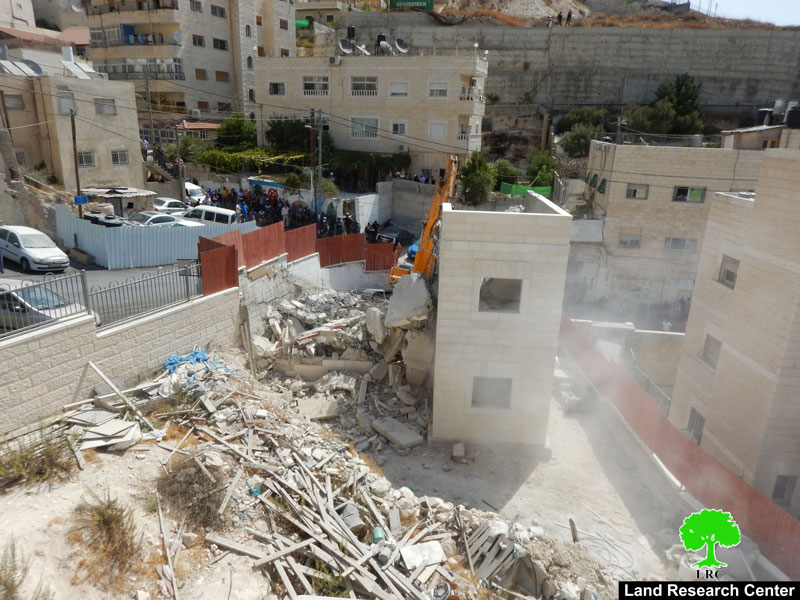
the occupation's dozers while bringing down the building
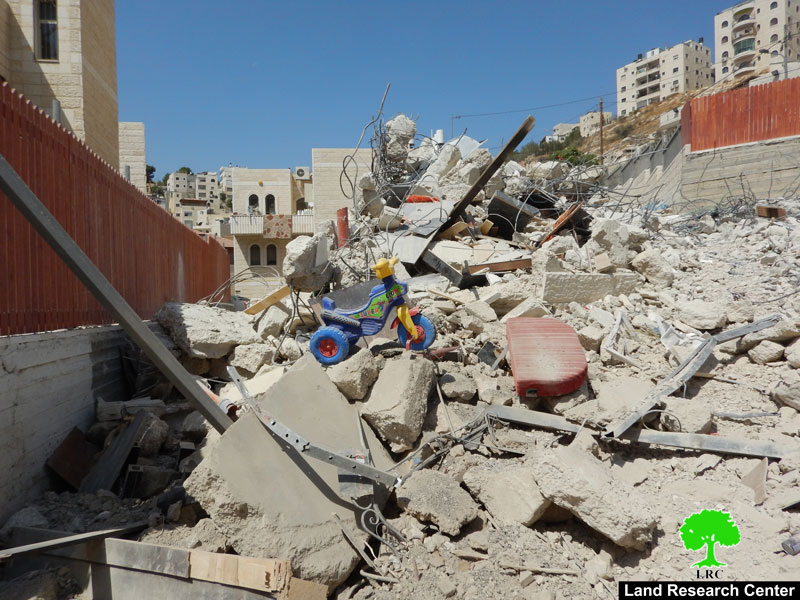
children's toys among the rubbles
Land Research Center LRC sees that demolitions contradict with all of the International conventions and Humanitarian laws including:
- Article 17 of the (1948) Universal Declaration of Human Rights stating: “Everyone has the right to own property alone as well as in association with others. No one shall be arbitrarily deprived of his property.”
- Section ‹G› of article 23 of the (1907) The Hague Conventions asserting: “In addition to the prohibitions provided by special Conventions, it is especially forbidden to destroy or seize the enemy's property, unless such destruction or seizure be imperatively demanded by the necessities of war.”
- Article 53 of the Geneva Fourth Convention (1948) declaring: “Any destruction by the Occupying Power of real or personal property belonging individually or collectively to private persons, or to the State, or to other public authorities, or to social or cooperative organizations, is prohibited, except where such destruction is rendered absolutely necessary by military operations.”
- Section 1, Article 11 of the International Covenant on Economic, Social and Cultural Rights (1966): “The States Parties to the present Covenant recognize the right of everyone to an adequate standard of living for himself and his family, including adequate food, clothing and housing, and to the continuous improvement of living conditions. The States Parties will take appropriate steps to ensure the realization of this right, recognizing to this effect the essential importance of international co-operation based on free consent."
This case study is part of Kan'aan Project

